Are there any questions left?
Contact us and we will answer!
THE EVOLUTION OF CLOTHES DRYERS: FROM HAND-CRANKED TO ENERGY-EFFICIENT MACHINES
The history of clothes dryers in the United States is a tale of innovation, convenience, and environmental considerations. From the early days of hand-cranked contraptions to the modern energy-efficient models we use today, the journey of the clothes dryer is one of continuous improvement and adaptation to the changing needs of society. In this article, we will delve into the fascinating history of clothes dryers, tracing their development from their humble beginnings to their impact on energy consumption today.
Early Innovations
The concept of mechanically drying clothes can be traced back to the early 19th century when M. Pochon from France created a hand-cranked clothes dryer in 1800. This early invention marked the first step towards mechanized clothes drying. However, these early devices were rudimentary and relied on open flames for heating, resulting in clothes that smelled of smoke and were stained with soot.
In 1892, George T. Sampson, an American inventor, revolutionized clothes drying by patenting the first automatic clothes dryer in the United States. Sampson's design featured suspension rods over a specially designed stove, allowing for quicker and safer drying, regardless of the weather. This marked a significant improvement in the laundry process, eliminating the risk of setting garments on fire.
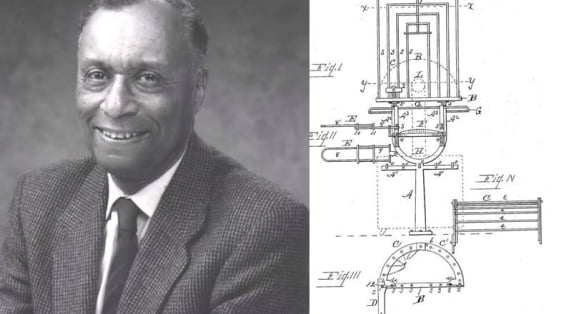

The Electric Era
The 1930s and 1940s saw the rise of electric clothes dryers in American households. Henry W. Altorfer patented an electric clothes dryer in 1937, paving the way for more widespread use of these appliances. J. Ross Moore, an inventor from North Dakota, contributed to the development by designing an electrically operated dryer in 1938. These innovations brought convenience and efficiency to American homes, making the drying of clothes faster and safer.
Modernization and Energy Efficiency
As technology continued to advance, clothes dryers evolved further. In the early 1940s, industrial designer Brooks Stevens introduced an electric dryer with a glass window, allowing users to monitor the drying process. This innovation not only improved functionality but also added a touch of modern design to laundry rooms.
Today, energy efficiency is a top priority in the design and manufacturing of clothes dryers. In the European Union, dryers are classified with energy labels ranging from A+++ (best) to G (worst), based on their energy consumption per kilogram of clothes. Sensor dryers, which can automatically detect when clothes are dry and switch off, have become the norm in the European market. This technology minimizes over-drying, reducing energy waste and environmental impact.
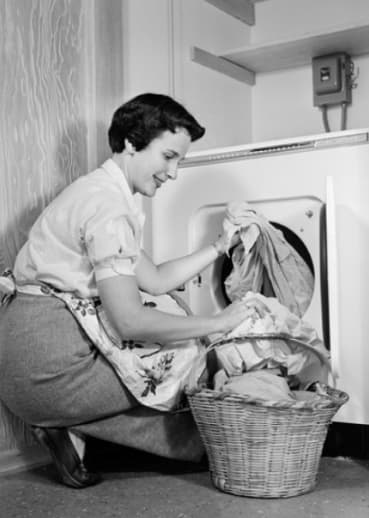
Environmental Considerations
The environmental impact of clothes dryers is a significant concern, especially in the United States and Canada, where over 80% of homes have a clothes dryer. According to the US Environmental Protection Agency, if all residential clothes dryers in the US were energy efficient, it would result in substantial utility cost savings and prevent billions of pounds of greenhouse gas emissions annually.
Clothes dryers rank as the second-largest residential electrical energy consumers in America, just behind refrigerators and freezers. As awareness of environmental issues grows, there is an increasing focus on developing and promoting energy-efficient models to mitigate the environmental impact of these appliances.
Conclusion
The history of clothes dryers in the United States reflects our ongoing quest for convenience, efficiency, and sustainability. From the humble hand-cranked contraption of the 19th century to the energy-efficient models of today, clothes dryers have come a long way. As we move forward, continued innovation and a commitment to energy efficiency will be essential to reduce the environmental footprint of these household appliances while making our lives more convenient.
The Impact of Clothes Dryers on Household Energy Consumption
Clothes dryers have become a staple in modern households, offering convenience and efficiency in the laundry routine. However, as these appliances have grown in popularity, their impact on household energy consumption has come under scrutiny.
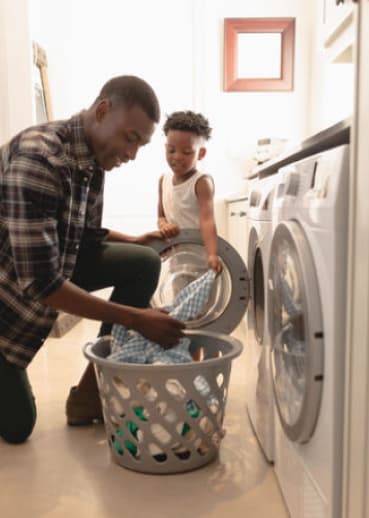
Energy Consumption by Clothes Dryers
Clothes dryers are one of the largest consumers of electricity in American homes, second only to refrigerators and freezers. On average, a typical electric dryer uses around 2.3 kilowatt-hours of electricity per load. This energy consumption adds up quickly, especially in households that rely on their dryers for most of their laundry needs.
Environmental Consequences
The environmental consequences of high energy consumption in clothes dryers are significant. The electricity required to power these appliances often comes from fossil fuels, contributing to greenhouse gas emissions and climate change. Additionally, the strain on energy resources can lead to increased electricity costs for consumers
Energy-Efficient Alternatives
To address the environmental impact of clothes dryers, manufacturers have introduced energy-efficient models. These dryers incorporate advanced technologies such as moisture sensors, heat pumps, and improved insulation to reduce energy consumption. Energy Star-rated dryers meet strict efficiency criteria and can significantly lower both energy bills and environmental footprint.
Consumer Choices and Sustainability
Consumers play a crucial role in reducing the impact of clothes dryers on energy consumption. Opting for energy-efficient models, adopting eco-friendly drying practices like air-drying when possible, and properly maintaining dryers can all contribute to sustainability efforts. Additionally, raising awareness about the environmental impact of clothes dryers can encourage more responsible usage.
In conclusion, while clothes dryers offer convenience, their energy consumption has significant environmental and economic implications. Energy-efficient alternatives and conscious consumer choices can help mitigate these impacts and contribute to a more sustainable future.
Innovations in Modern Clothes Dryer Technology
The laundry room has come a long way since the early hand-cranked clothes dryer. Modern clothes dryers are equipped with cutting-edge technology and innovative features that enhance efficiency, convenience, and user-friendliness
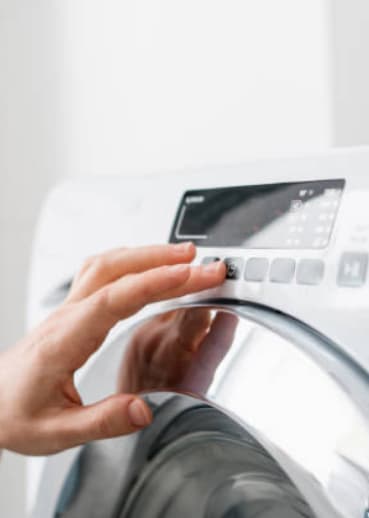
Sensor Technology
One of the most significant innovations in modern clothes dryers is sensor technology. Moisture sensors detect the level of moisture in the clothes and adjust the drying time accordingly. This prevents over-drying, reduces energy waste, and helps extend the lifespan of garments.
Digital Controls and Customization
Modern dryers feature digital controls and customizable settings that allow users to tailor their drying experience. From adjusting temperature settings to specifying drying times, these options provide greater flexibility and control over the drying process.
Energy-Efficient Heat Sources
Advanced heating elements and heat pump technology have made dryers more energy-efficient. Heat pump dryers, in particular, recycle heat from the drying process, resulting in significant energy savings compared to traditional dryers.
Safety Features
Modern dryers are also equipped with safety features such as automatic shut-off mechanisms and fire prevention technologies. These features help ensure user safety and reduce the risk of dryer-related accidents
Design and Aesthetics
In addition to functionality, modern dryers incorporate sleek designs and aesthetics that blend seamlessly with modern home decor. Some models even include glass windows, allowing users to observe the drying process.
Smart Technology Integration
The integration of smart technology is another exciting trend. Smart dryers can be controlled remotely via smartphone apps, enabling users to monitor and adjust drying cycles from anywhere. This connectivity also facilitates software updates and troubleshooting.
In conclusion, innovations in modern clothes dryer technology have transformed these appliances into efficient, user-friendly, and stylish additions to the laundry room. These advancements not only save time and energy but also enhance the overall laundry experience.
Energy Labeling and Sustainability in the US: A Path to a Greener Future
As the global community grapples with the challenges posed by climate change, sustainability has emerged as a paramount concern. In the United States, a significant stride toward a greener future has been made through energy labeling initiatives. These programs are designed to provide consumers with vital information about the energy efficiency and environmental impact of the products they purchase. In this article, we'll explore the importance of energy labeling and sustainability in the US, how it benefits both consumers and the planet, and the growing trend toward eco-conscious choices.
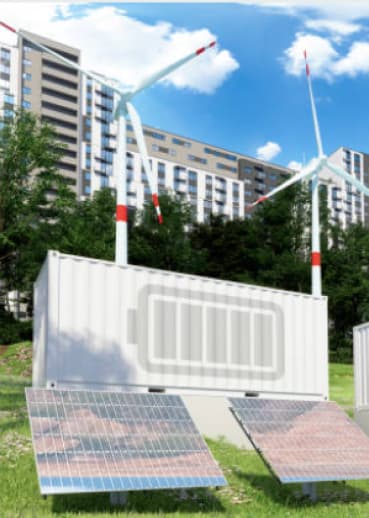
The Significance of Energy Labeling
Energy labeling is a practice that involves affixing specific labels to products to inform consumers about their energy consumption and efficiency. One of the most familiar instances of this is the Energy Star label, a widely recognized symbol in the US. These labels serve as a quick reference guide, helping consumers make informed choices about the products they buy, such as appliances, electronics, lighting, and even homes.
Empowering Consumers
Energy labels empower consumers to make choices that align with their environmental values and pocketbooks. By providing clear, standardized information, these labels make it easier for consumers to select energy-efficient products that can lead to significant long-term cost savings on utility bills. In essence, it's a win-win situation where consumers benefit financially while contributing to environmental conservation efforts.
Reducing Energy Consumption
One of the primary goals of energy labeling is to reduce energy consumption. The more energy-efficient products consumers choose, the less energy is wasted, resulting in lower greenhouse gas emissions. This, in turn, helps mitigate the effects of climate change, making energy labeling a crucial component of the broader sustainability movement.
Government Initiatives
The US government has been proactive in promoting energy labeling and sustainability. Federal agencies, such as the Environmental Protection Agency (EPA) and the Department of Energy (DOE), play pivotal roles in establishing and maintaining energy efficiency standards. They also collaborate with manufacturers to ensure products meet these standards and display relevant labels
The Role of Consumers
Consumer demand for sustainable products has driven many businesses to embrace eco-friendly practices. Companies are not only producing energy-efficient products but are also adopting sustainability measures in their operations. This shift reflects consumers' growing awareness of their impact on the environment and their desire to support environmentally responsible businesses.
Looking Ahead
Energy labeling and sustainability in the US are integral components of the nation's commitment to combat climate change and promote responsible consumption. As we look ahead, we can expect to see even more innovative labeling programs and sustainability initiatives. These efforts will empower consumers to make eco-conscious choices and encourage businesses to prioritize sustainability, ultimately steering us toward a greener and more sustainable future.
In conclusion, energy labeling is not just about saving energy and reducing costs; it's a critical step in addressing the environmental challenges we face. Sustainability in the US is no longer a mere trend; it's a fundamental aspect of our society, driving positive change in our homes, businesses, and communities.
The Future of Clothes Dryers: Trends in Energy Efficiency and Environmental Responsibility
As society becomes increasingly aware of environmental issues and energy conservation, the future of clothes dryers is taking a more sustainable turn. Emerging trends in energy efficiency and environmental responsibility are shaping the next generation of these essential household appliances.
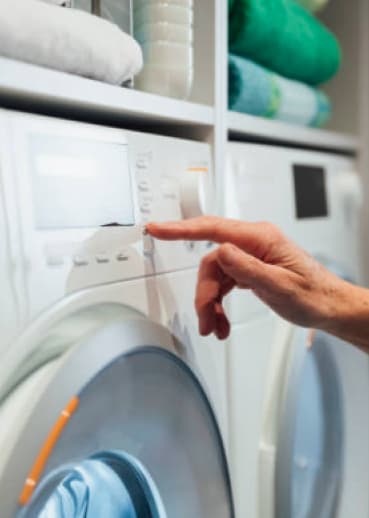
Advanced Sensor Technology
Sensor technology in clothes dryers is advancing rapidly. Future dryers will feature even more precise moisture sensors, allowing for pinpoint accuracy in determining when clothes are dry. This not only reduces energy consumption but also prolongs the life of garments.
Heat Pump Innovation
Heat pump dryers, which are already more energy-efficient than traditional dryers, will become even more prevalent. These appliances use a closed-loop system to recycle heat, making them highly efficient and eco-friendly. Expect to see further improvements in heat pump technology.
Integration of Renewable Energy
One of the future trends is the integration of renewable energy sources into clothes dryers. Some models may be designed to harness solar or wind power, reducing reliance on conventional electricity sources and further lowering the carbon footprint of drying clothes.
Smart Home Integration
The trend of smart home technology is extending to dryers. These smart dryers will be seamlessly integrated into home automation systems, allowing users to optimize drying schedules based on energy prices, weather forecasts, and energy availability from renewable sources.
Sustainability Certifications
Manufacturers will increasingly seek sustainability certifications for their dryers, such as Energy Star certification. These designations will not only assure consumers of the appliance's eco-friendliness but also qualify them for energy efficiency rebates.
Consumer Education
Educating consumers about the environmental impact of their drying choices will become more widespread. Manufacturers and environmental organizations will collaborate to raise awareness about energy-efficient drying practices and responsible appliance usage.
In conclusion, the future of clothes dryers is promising in terms of energy efficiency and environmental responsibility. Emerging technologies and a growing commitment to sustainability will lead to a new generation of dryers that are both eco-friendly and energy-efficient, benefiting both.
Most Popular Dryer Brands
Choosing a reliable and efficient dryer for your home in Charlotte, NC is an essential part of any laundry room setup. With a wide range of options available in the market, it's important to know which brands consistently deliver quality and performance. Here you’ll find the most popular dryer brands known for their durability, innovative features, and customer satisfaction.
- Whirlpool
Whirlpool is a household name when it comes to home appliances, and their dryers are no exception. Known for their reliability and durability, Whirlpool dryers offer a wide range of models to suit different needs, from basic options to advanced features like steam drying and Wi-Fi connectivity. - Maytag
Maytag has a long history of producing dependable laundry appliances. Their dryers are known for their robust construction and high-performance drying capabilities. Maytag dryers are often praised for their longevity and ability to handle heavy loads. - LG
LG is a brand synonymous with cutting-edge technology, and their dryers are no exception. LG dryers often feature advanced options like sensor drying, steam cycles, and smartphone connectivity. They are known for their efficiency and user-friendly interfaces. - Samsung
Samsung dryers are celebrated for their innovative features and sleek designs. They offer a wide variety of models, including high-capacity options and those equipped with advanced sensors to prevent over-drying. Samsung's commitment to energy efficiency is evident in many of their dryer models.
- GE
GE is a trusted brand in the appliance industry, and their dryers are known for their quality and durability. GE offers a range of dryer options, from traditional models to high-efficiency units equipped with advanced technologies. - Bosch
Bosch is renowned for its engineering excellence, and this extends to their dryer offerings. Bosch dryers are known for their quiet operation, energy efficiency, and compact designs. They are particularly popular in smaller living spaces where space-saving appliances are essential. - KitchenAid
KitchenAid is known for its premium kitchen appliances, and their dryers maintain the brand's reputation for quality. KitchenAid dryers are praised for their sturdy build and effective drying performance, making them a popular choice among homeowners. - Whirlpool's Kenmore
Kenmore dryers, manufactured by Whirlpool, are known for their affordability and reliability. These dryers offer excellent value for money and come in a variety of styles and sizes to suit different laundry needs. - Frigidaire
Frigidaire dryers are appreciated for their simple yet effective design and competitive pricing. They offer a range of features, from basic settings to advanced options, making them a practical choice for many consumers. - Miele
Miele is a premium brand that focuses on precision and longevity. Their dryers are designed to last and offer a host of advanced features, such as heat pump technology and precise drying programs. - Thermador
Thermador is known for its high-end kitchen appliances, and their dryers reflect the brand's commitment to quality and performance. These dryers often come equipped with advanced features and a sleek design. - Viking
Viking is another premium brand that produces high-quality dryers. Viking dryers are designed to withstand heavy use and offer advanced features for efficient and effective drying.
Conclusion
When it comes to selecting a dryer for your laundry needs, these popular brands offer a wide range of options to suit various budgets and preferences. Whether you prioritize advanced technology, energy efficiency, or affordability, you can find a dryer from one of these reputable brands that meets your requirements. Always consider your specific needs and do some research to choose the dryer that best fits your lifestyle and laundry habits
In the ever-evolving world of clothes dryers, we've witnessed a remarkable journey from humble beginnings to cutting-edge efficiency. As we embrace innovations that prioritize energy efficiency and environmental responsibility, brands like Whirlpool, Maytag, LG appliances, and others are at the forefront of providing reliable and eco-friendly options. When it comes to choosing a dryer for your home in Charlotte, NC, FastAid Appliance Repair is here to ensure your appliance stays in top condition. Whether it's an old hand-cranked dryer or a modern energy-efficient model, count on us for expert repairs and maintenance to keep your laundry routine running smoothly. Join us in shaping a greener future, one load at a time.
FAQs
A typical electric clothes dryer consumes approximately 2.3 kilowatt-hours of electricity per load. However, energy-efficient models can significantly reduce this consumption.
Yes, energy-efficient alternatives, such as heat pump dryers and Energy Star-rated models, are available. These dryers use advanced technology to reduce energy consumption and environmental impact.
As a consumer, you can choose energy-efficient models, practice eco-friendly drying methods (like air-drying when possible), and properly maintain your dryer to maximize its efficiency.
Energy labels provide information about an appliance's energy efficiency. In the US, look for the Energy Star label, which indicates that the appliance meets stringent energy efficiency criteria set by the EPA.
Several dryer brands, including Whirlpool, LG, Samsung, and Bosch, have made sustainability a priority in their appliance designs. Look for brands that offer energy-efficient models and have received environmental certifications.